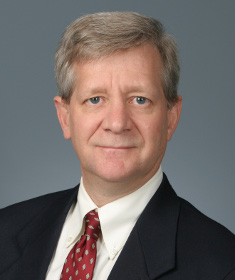Gagner le statut de conseiller digne de confiance

While it is all well and good—even honorable—really, to associate selling success with being a trusted advisor, what does it take to earn that status with customers in today's buying environment?
Research by CSO Insights, the Aberdeen Group, and others has shown that just telling salespeople to be trusted advisors has not worked: Win rates have fallen and no-decision rates have grown. Customer behaviors seem to be saying that they don't trust salespeople's intent, and don't see them as a credible advisor.
To address this concern, let's explore three key principles that point the way to becoming a trusted advisor.
1. CREATING THE TRUST IN TRUSTED ADVISOR
We have all seen articles stating that "relationship selling" is dead; however, salespeople will say trust, the foundation of relationship selling, is a must. Salespeople know that if you don't have a strong, trusting relationship with your customer, you will never be seen as a trusted advisor, and you will never be successful.
First and foremost, creating a trusting relationship requires both a mindset and a set of actions. As a mindset, a salesperson must truly believe that his/her job is to help the customer solve their problem. Salespeople who mentally calculate their commission during a sale will quickly be seen for what they are—someone more interested in making the sale than they are in the customer's needs and expectations.
In addition to having the right mindset, trusted advisors know how to demonstrate their sincere interest in helping the customer. The discipline of relationship selling is knowing how to show empathy, how to demonstrate credibility and competence, and how to anticipate customers' concerns.
It is this mindset and set of actions that a salesperson must have to approach the sales process with authenticity, passion, and positive intent. Relationship selling is about who you are and what you do, and is communicated by actions focused on the customer and their needs. This leads to trust.
2. FACILITATE CUSTOMER’S BUYING PROCESS
For many years sales executives have drilled into salespeople that they must follow a systematic "sales process." Countless resources have gone into developing procedures, software, websites, and checklists—all demanding that there is one best way to structure the "sale." This is wrong.
The best "selling process" does not sell; it enables the customer to buy. The antithesis of the trusted advisor is the salesperson who believes that if I just follow these five (or seven or nine) sales process steps, I will be successful. The action of a trusted advisor is to help the customer buy the way they want to buy, NOT how you want to sell.
The discipline required to facilitate the customer's buying process is:
- Helping the customer discover the urgency behind their need and defining the problem that needs to be solved.
- Helping the customer see what elements of a solution have value for them and which elements don't.
- Helping the customer gather support for the solution within their own organization, creating alignment for action.
Helping a customer buy cannot be done by following a seller-centric sales process; it requires a two-way conversation between the trusted advisor and customer to understand the problem and to recognize the urgency.
3. MAKING SENSE OF COMPLEXITY
The good and bad news for buyers today is that they have almost an infinite amount of information available at their fingertips. The responsibility of a trusted advisor is to help the customer make sense of this complexity, cutting through the clutter to find the right solution that will solve their problem. The discipline of the trusted advisor is to link their solution to the advantages and benefits for the customer. A trusted advisor listens to the customer and shares business insights, clarifies to ensure understanding, reduces (not creates) confusion, and presents possible solutions to the problem that not only satisfies, but delights the customer.
APPLYING ACTIONABLE DISCIPLINE TO ACHIEVE TRUSTED ADVISOR STATUS
Actionable discipline, however, is going beyond just what is necessary and taking the time to do what they know they should do, every time. While all salespeople take action, many take the path of least resistance, doing what is comfortable or what they think is necessary to make the sale. However, it takes actionable discipline to become a trusted advisor, and once a salesperson earns it, it is a coveted position that provides greater business-level value to customers and to your organization.
Take ownership for creating trust. Facilitate the customer's buying process. Make sense of complexity. Your efforts will produce ongoing, long-term relationships that present multiple opportunities to sell and service, while enabling your customers to buy how they want to buy.
Pour en savoir plus, contactez Wilson Learning au 01 47 51 70 70 or rendez-vous sur notre site Internet at WilsonLearning.com.









 Merci de remplir ce formulaire afin de télécharger Gagner le statut de conseiller digne de confiance».
Merci de remplir ce formulaire afin de télécharger Gagner le statut de conseiller digne de confiance».



